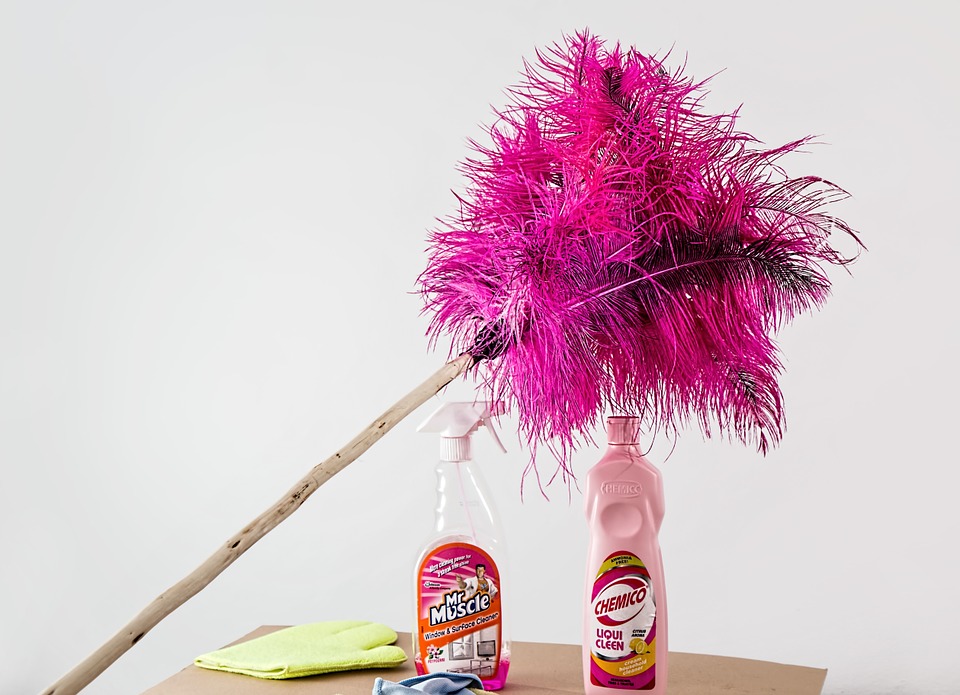After a study by Harvard Business Review discovered that women and people from BAME backgrounds in the office are left to carry out the ‘office housework’, Jade Burke speaks to some PA Life readers and consultants about whether this data rings true in the PA space.
Cleaning up after a board meeting, fetching the teas and coffees and tidying up the photocopier are all part and parcel of an office role. But why are some employees left to complete these tasks, while others escape those less than alluring jobs?
Billed ‘office housework’, these jobs are often avoided since they are more mundane compared to the other tasks employees could be getting on with. However, according to research carried out by Harvard Business School earlier this year, it seems these jobs are being left to the women and people from BAME (black, Asian and minority ethnic) backgrounds in the workplace.
“In today ’s corporate environment there are still men that believe they should not have to do these ‘mundane cleaning tasks’. This is clearly not the case as we move forward in society.” – Heather Clark
In a study carried out by Harvard Business Review of the Society of Women Engineers, the firm found that women were 29 per cent more likely than white men to report doing more office housework than their colleagues. Harvard also noticed some similar disparities when it came to different races. For example, when the firm surveyed a nationwide sample of lawyers, women within the BAME community were most likely to report doing more administrative tasks than their colleagues – over 20 per cent more likely than white men.
“I think many corporate offices are still used to the ‘old ways’ of how an office operated. Many assistants were women (or those of colour) as men did the task at hand and moved onto the next meeting/task, leaving the clean-up work to their assistants,” Heather Clark, declutter coach and consultant for home and office detoxes, tells PA Life. “In today’s corporate environment there are still men that believe they should not have to do these ‘mundane cleaning tasks’ as they have more important appointments and meetings to attend. This is clearly not the case as we move forward in society.”
Glamour jobs
In comparison to these dull tasks, there are a number of ‘glamour jobs’ that are being seized by other team members. Glamour work that gets noticed by managerial staff and offers an employee the opportunity to broaden their skillset with a new challenge that can result in a promotion, are often taken up by the males in the office. For example, within the sample of lawyers, white women were 18 per cent more likely to report doing more admin tasks than white men.
So why are these jobs being left for others to ‘clean up’? “There is an expectation that we will clear up after meetings, put the fruit and biscuits out in the kitchen and keep the coffee/tea and milk stocked up,” reveals Sally Fenton, HR manager at Fairley House School. “I do feel that we have done it for so long, that we now do it without thinking. I do notice that younger members of staff are much more resistant to office housework, so maybe ageism comes into it as well. I think if you like a clean and tidy workplace then again you automatically will clear as you go along.”
We are all creatures of habit so it can be difficult to break tradition if you are used to dealing with the ‘housework’ in the office. However, if everybody chipped in and made a conscious effort to help one another then those who are usually left to ‘clean up’ will be given the opportunity to apply their skills to more important matters.
“It’s about the whole team having respect for the workspace, ensuring it is a comfortable place for all to be.” – Laura Koonjean
Laura Koonjean, EA to the CEO at Drinkaware, shares: “It can often be office housekeeper, not an office manager. We accept that some parts of the role are not glam. Admin is not glam, it’s our job. It would be nice if people remember we usually work with very high-level people who require our high-level assistance. That’s what we get paid for. “It’s also about the whole team having respect for and taking collective responsibility for the workspace, ensuring it is a comfortable place for all to be.”
Feeling appreciated in the workplace is a huge contributing factor, which can lead to the same staff carrying out the same daily tasks. This can create a sense of gratitude and helps employees feel more valued compared to others who escape the duller office tasks. “It’s important to do the job that you have been employed to do and that will include clearing up, but if you feel that you are not treated well, then perhaps a conversation with your boss would help.”
Addressing the issue
Instead of assuming the usual team members are happy to take on these jobs, employers have a duty to acknowledge that these tasks are only taken up by certain people. Taking note of who does what and addressing the fact that more people can also help out in an office environment will result in a happier and solid workforce.
Jenni Hallam, personal development and business coach, suggests: “Awareness is key. The employer needs to realise the cycle of negativity and discrimination they are endorsing just by doing nothing about this. Rather than confronting individuals, I’d recommend running some group coaching sessions/small-scale workshops for women in the business to help them recognise how their behaviour may be sabotaging their credibility – how by being ‘helpful and efficient’ they are giving away their power. Once they realise this they can plan a positive way to shift expectations and develop a fair system.
“Employers could also be proactive about organising office housework in advance. Where there are regular meetings with attendees, set up a rota for who will clear up each time. These rotas should include everyone including senior staff and the employers themselves.”
If employers fail to recognise that something needs to be done, employees shouldn’t be afraid to speak up and confide in their boss. “If they keep quiet and carry on doing it, nothing will change,” adds Hallam. “This means overcoming any lurking fears that ‘complaining’ will damage their reputation or credibility. On the contrary, they are more likely to gain respect from peers and leadership.”










